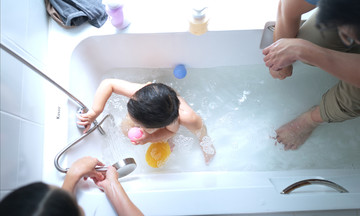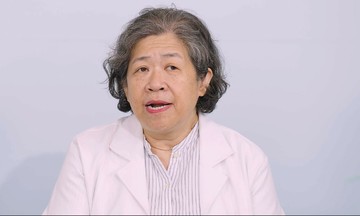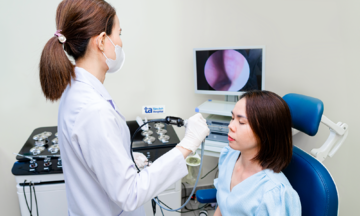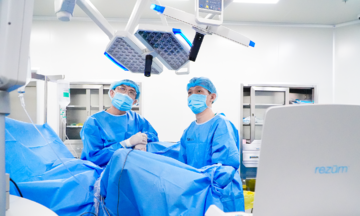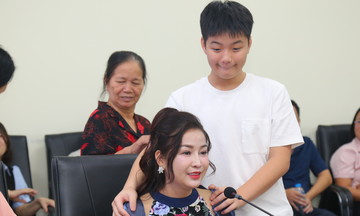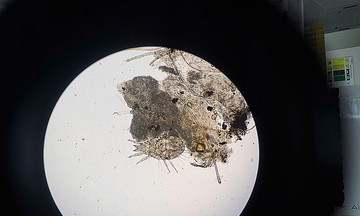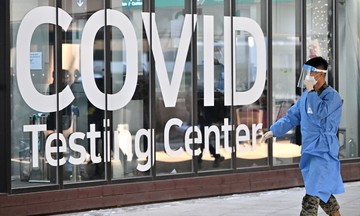An and her husband had undergone IVF at multiple hospitals, creating several embryos, but each transfer to the uterus had been unsuccessful for unknown reasons. At 40, An visited the Center for Reproductive Support at Tam Anh General Hospital in Hanoi (IVFTA). Doctor Le Quang Do noted that with An's advanced maternal age, diminishing ovarian reserve, and reduced egg quality, the likelihood of genetically abnormal embryos was high, potentially reaching 60-70%. This made implantation difficult and increased the risk of miscarriage or stillbirth. Dr. Do predicted that without embryo screening, repeated failure was likely.
An was recommended IVF combined with preimplantation genetic testing for aneuploidy (PGT-A). This method is typically used in cases involving chromosomal abnormalities in either parent, advanced maternal age (over 35), a history of miscarriage, or multiple failed embryo transfers.
After egg retrieval and fertilization with her husband's sperm, three day-5 embryos and one day-6 embryo were obtained. The embryos were cultivated in a Timelapse incubator with integrated AI, allowing continuous monitoring of cell division and embryo development. An embryologist extracted cells from each embryo for genetic testing. Results revealed three abnormal embryos and one normal day-5 embryo.
Transferring this healthy embryo increased the chances of implantation, reduced the risk of miscarriage, and improved the likelihood of a healthy baby. However, the ultimate success depended not only on embryo quality but also on the mother's age, overall health, and uterine condition. Before the transfer, a hysteroscopy revealed inflammation and small polyps in An's uterine lining, which could hinder implantation. Dr. Do performed a polypectomy and treated the inflammation.
Late last year, the healthy embryo was successfully transferred, resulting in pregnancy. Last month, An gave birth to a healthy baby girl weighing 2.7 kg.
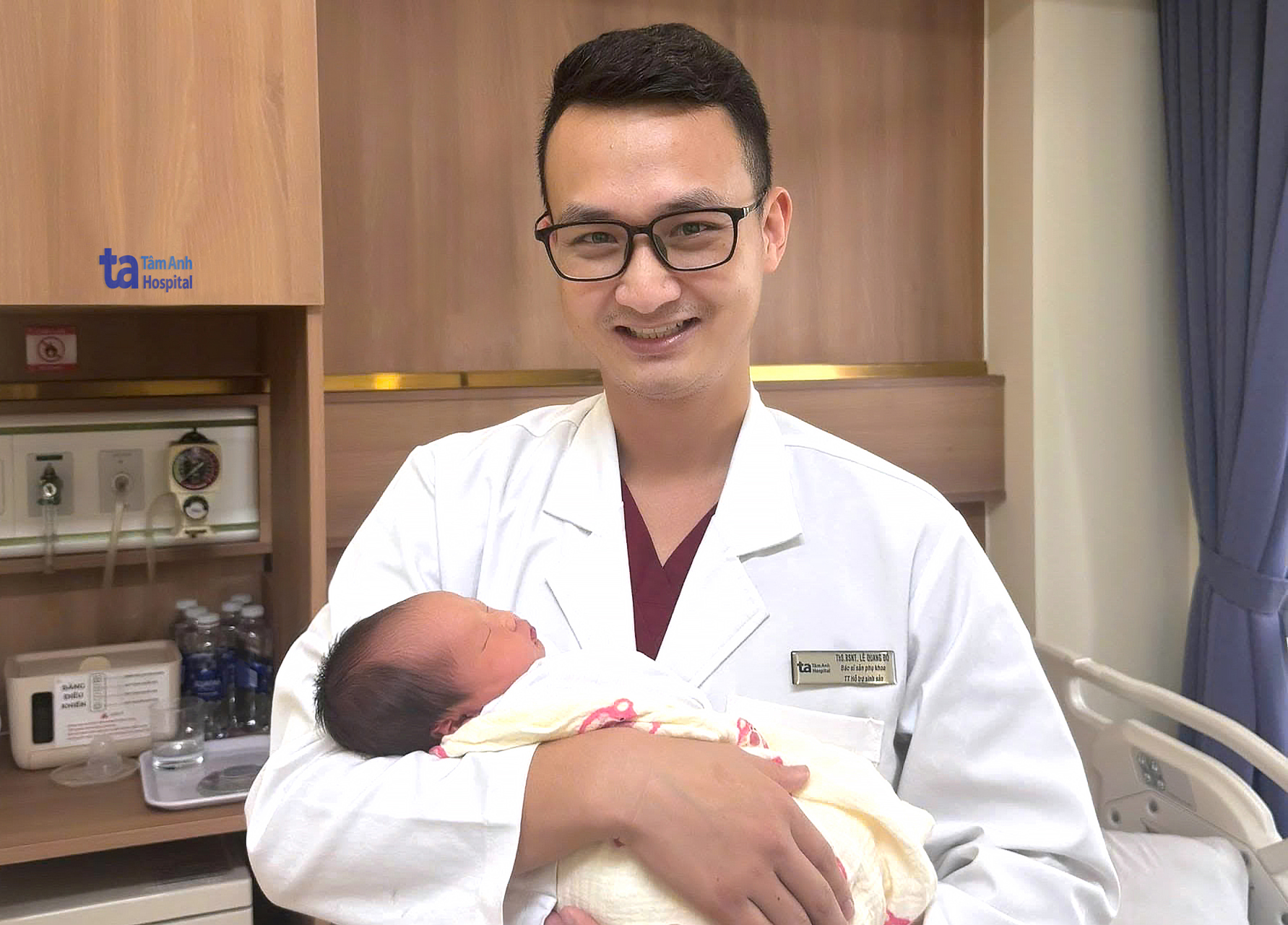 |
Dr. Le Quang Do holding An's daughter after birth. Photo: IVF Tam Anh |
Dr. Le Quang Do holding An's daughter after birth. Photo: IVF Tam Anh
According to Dr. Do, embryo screening is particularly beneficial for women over 35, those with multiple failed embryo transfers or unexplained miscarriages, or those with a family history of genetic disorders. However, in many infertility cases, the cause of failure isn't solely the embryo but also the uterine environment. Combining treatment for uterine abnormalities with the selection of a healthy embryo significantly improves the success rate.
Thanh Ba



